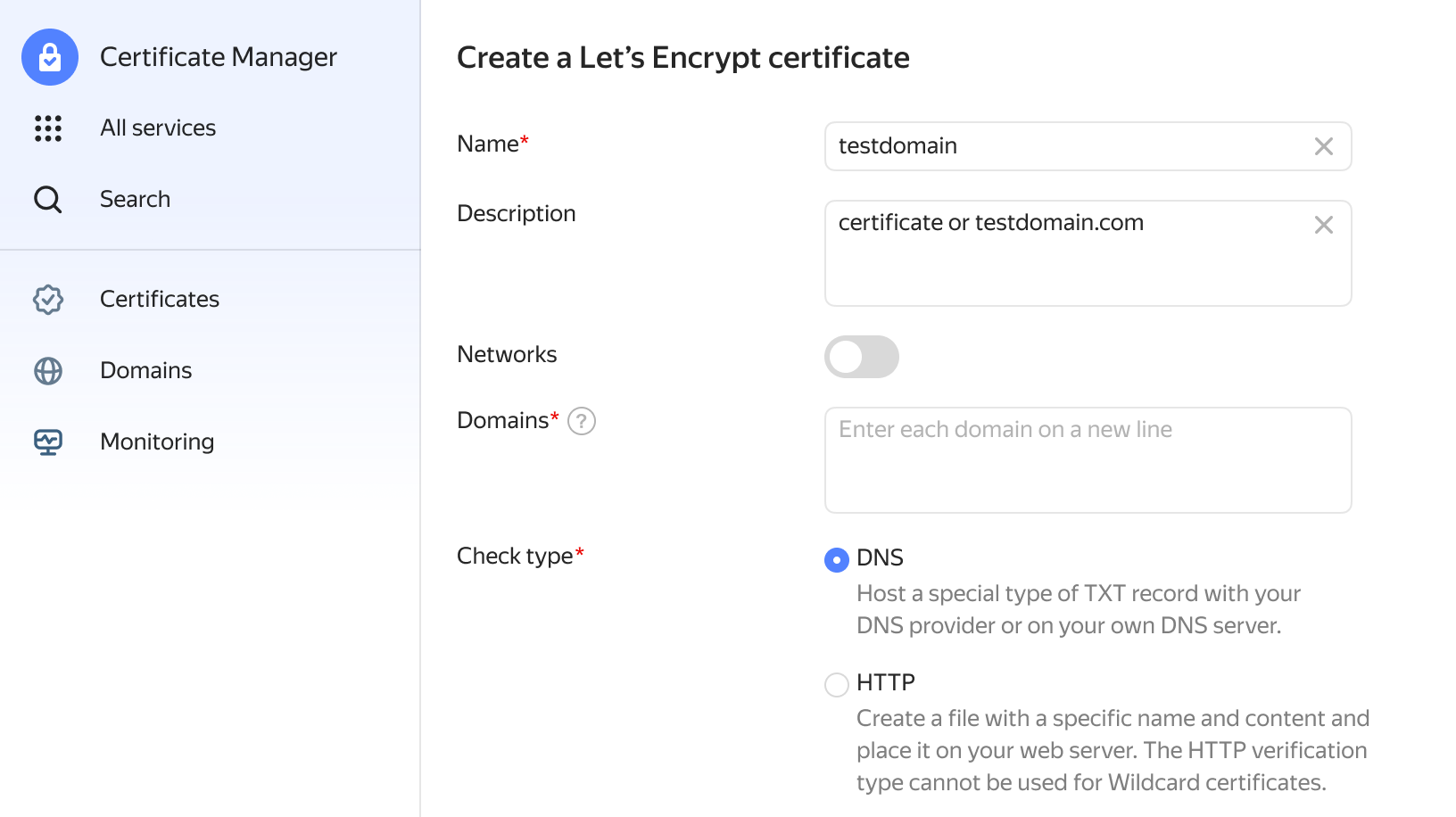
Yandex Certificate Manager
A service for managing TLS certificates.
Convenient control
Create or import TLS certificates and keep track of their validity in the management console.
Let’s Encrypt® certificates
You can get and update Let’s Encrypt certificates automatically. To do this, you only need to confirm your domain rights.
Custom certificates
You can upload certificates provided by third-party certification authorities yourself and use them in Yandex Cloud.
Integration with other services
Select certificates from Yandex Certificate Manager for Object Storage and provide access to your static websites via HTTPS.
Domains for Yandex API Gateway
Use domains with confirmed rights when accessing the API. In this case, a certificate linked to the domain is used to provide a TLS connection.
Continuous operation
After you upload and update certificates, they are updated on all resources at the same time.
Getting started
Getting started
Create a Let’s Encrypt certificate and confirm your domain access rights. Once you do that, we’ll take care of certificate management.

Questions and answers
Which Let’s Encrypt certificates are available in Certificate Manager?
Which Let’s Encrypt certificates are available in Certificate Manager?
Let’s Encrypt provides Domain Validation TLS certificates with a 90-day validity period. If you need Organization Validation or Extended Validation certificates, use a third-party certification authority to get the certificate and then upload it to Certificate Manager.
How are domain rights verified?
How are domain rights verified?
Why do I need a TLS certificate?
Why do I need a TLS certificate?
When can a certificate be updated automatically?
When can a certificate be updated automatically?